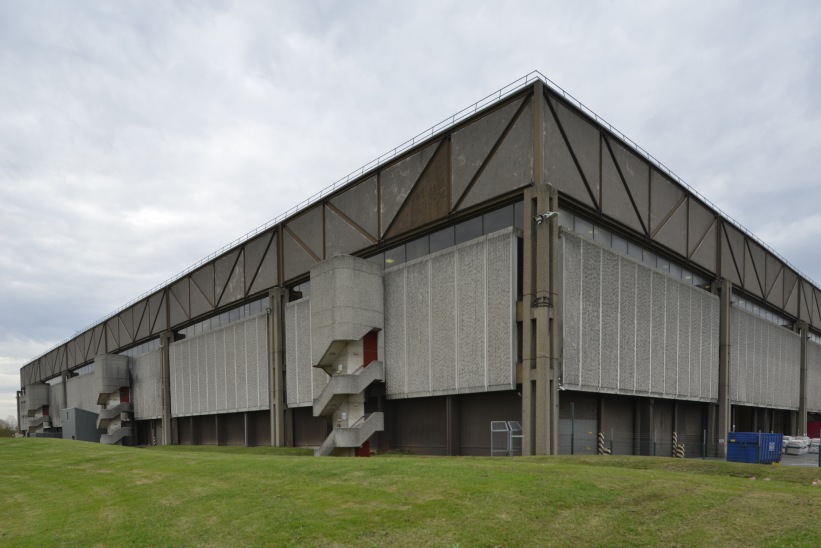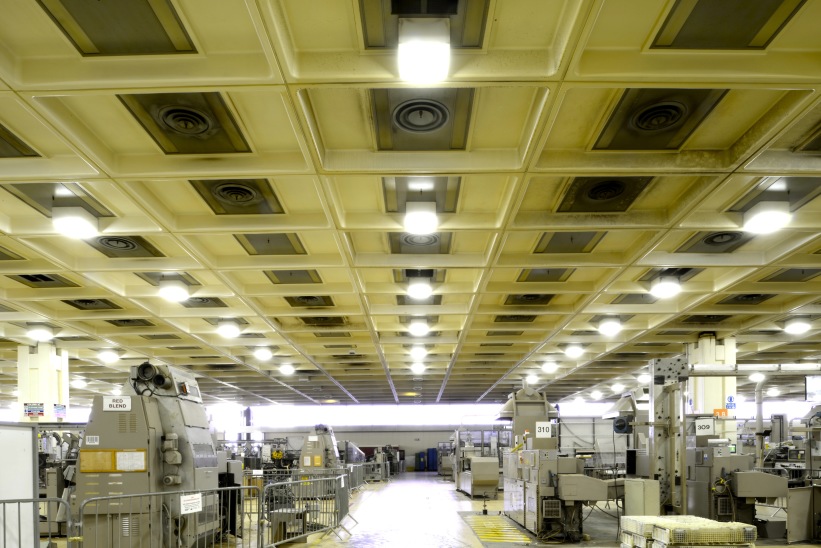Arup Associates : Horizon Building, 1968C–1971
- Nottingham, Great Britain, Show on map
- #Western Europe
-
John Player began making cigarettes in Nottingham in 1877 and the business grew into a complex of factories at Radford, close to the city centre. In 1971 it moved its operations to the new factory, designed by Arup Associates, at Lenton, on the edge of the conurbation. The multi-disciplinary team produced a building which is an exemplary marriage of architecture and engineering in the best traditions of the practice. The brief called for a very large, unobstructed production space and for a sophisticated servicing strategy to create an environment with highly controlled humidity. (Tobacco companies paid tax – Player’s at the rate of £1.25 million a day – on the basis of the weight of the tobacco used and this varied greatly with moisture content.) The design of the building was based on the use of a repeatable module 100 feet square – 36 units in total with an area of 1.35 million square feet.
On the upper production level columns are spaced at 100 feet intervals. Packing, storage, staff facilities, and office spaces are located on lower levels. The importance of services design in the project is reflected in the massive power house (run on newly available supplies of North Sea gas – waste heat recycling was one of the innovative features of the project). The building is a temple of industry in the tradition of Behrens’ turbine factory – and the nearby production buildings of Boots’ the Chemist, designed by Owen Williams. Huge panels of pre-cast concrete, tooled to produce a distinctive texture, contrast with the painted steel roof trusses. Powerfully modelled external escape stairs add to the impression of monumental strength. (From ‘Arup Associates 50: 1963-2013’, written by Ken Powell)
Awards:
1973
Financial Times Awards
Winner
Industrial Architecture Category
1972
Civic Trust Award
Winner
Royal Institute of British Architects RIBA Award
Winner -
Demolished in 2018/19.

